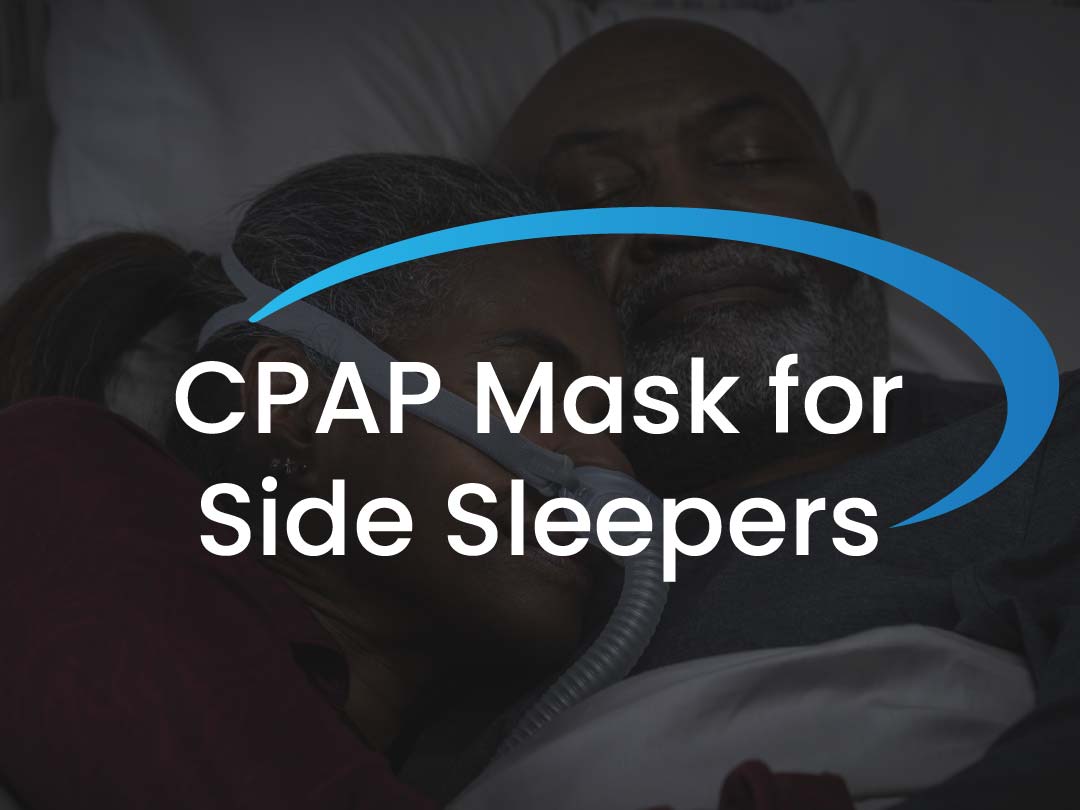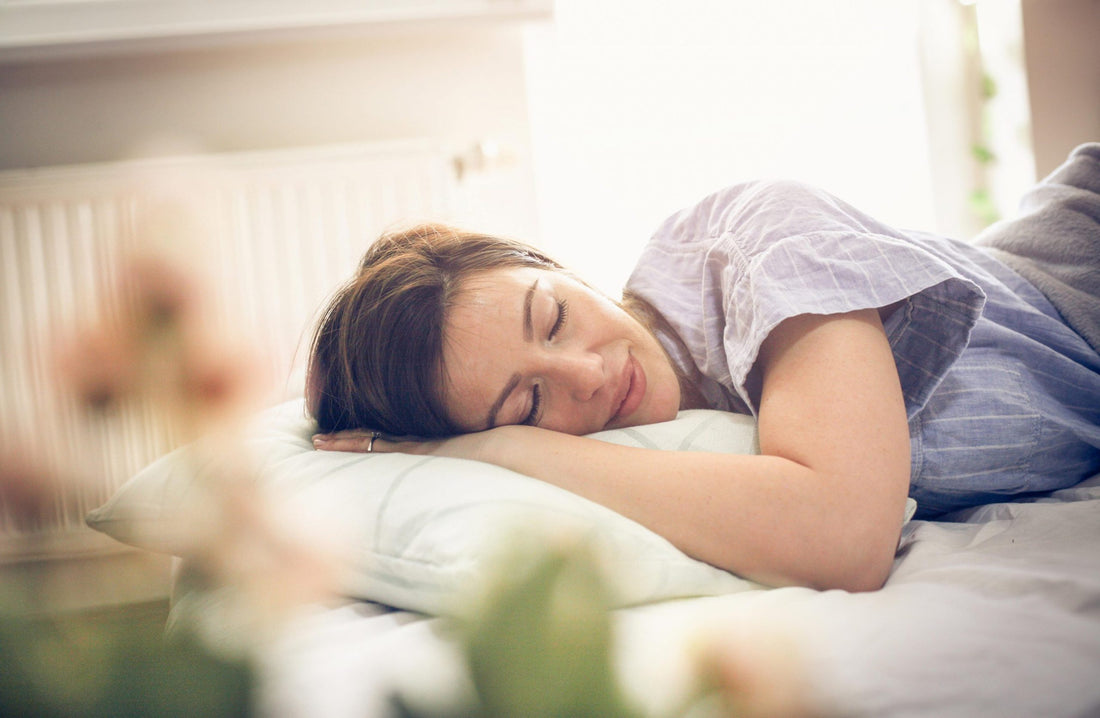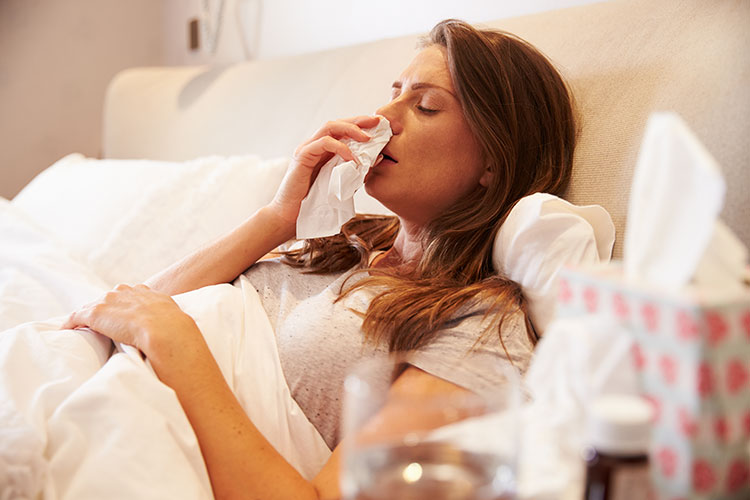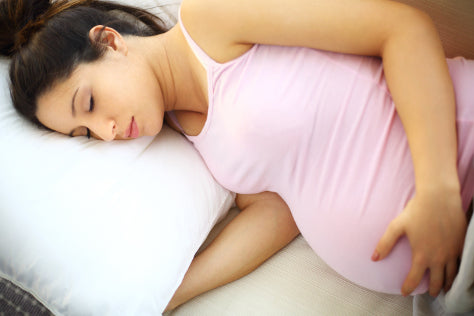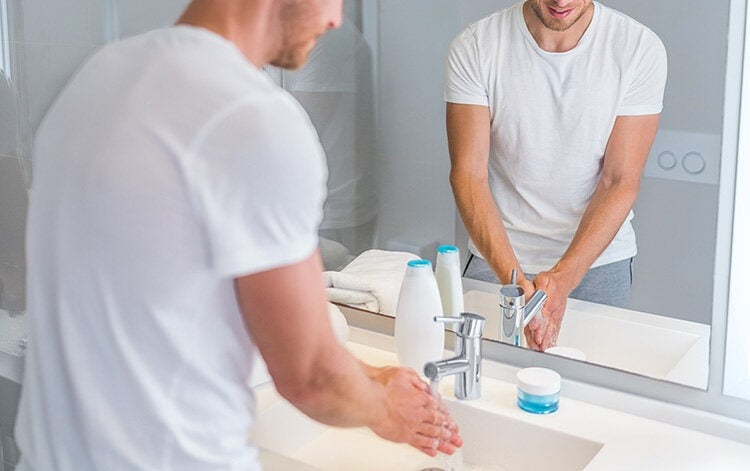News
Travelling with a CPAP Machine
Planning summer travel with your CPAP machine doesn't have to be stressful with proper preparation. This essential guide covers five key strategies: checking your equipment for wear and tear before departure, creating a comprehensive packing checklist, always keeping your CPAP in carry-on luggage, considering a travel-sized machine for frequent travelers, and maintaining your therapy routine while away. Proper planning ensures you'll sleep well and enjoy your vacation to the fullest.
about Travelling with a CPAP MachineGet your CPAP Ready for Summer
Hot summer weather can negatively impact sleep apnea and CPAP therapy effectiveness, making seasonal adjustments essential for quality rest. This guide covers four crucial summer preparation steps: lowering humidifier settings to prevent condensation buildup, maintaining cool bedroom temperatures with air conditioning, inspecting and replacing worn CPAP parts before peak season, and keeping windows closed to avoid pollen and allergens that can worsen sleep apnea symptoms.
about Get your CPAP Ready for SummerSleep Deprivation is Affecting your Love Life
Poor sleep doesn't just affect your health, it can seriously damage your relationships too. Sleep deprivation makes you less attractive to potential partners, reduces your ability to navigate dating successfully, increases irritability and conflicts with your spouse, decreases sexual desire, and disrupts your partner's sleep through restless movements. Understanding these connection points between sleep quality and relationship health can motivate you to prioritize better rest for both you and your loved ones.
about Sleep Deprivation is Affecting your Love LifeSleep Hygiene Tips for Warm Weather
wp:paragraph The warmer weather has officially arrived in many places! As much as you may be enjoying the sunshine, you may have noticed that your sleep is affected by the warm temperatures. It’s important to know that certain sleep hygiene practices for cold weather don’t always apply when it’s warm out. /wp:paragraph wp:paragraph Here are a few sleep hygiene tips for keeping cool in the warmer weather; /wp:paragraph wp:paragraph Keep your room cool: Trying to get a good sleep with the temperature being too warm can be extremely uncomfortable and can cause you to overheat. Make sure you set the temperature of your room accordingly, use fans to help cool the room down and keep the window closed. /wp:paragraph wp:paragraph Re-evaluate your bedding: The hot weather is not the time to be using flannel sheets and heavy duvet covers. Instead, switch out your bedding to sheets made of a lighter cotton that is more breathable, and switch out that heavy comforter for a duvet cover or quilt that is lighter and designed better for warmer nights. /wp:paragraph wp:paragraph Don’t over-dress: Much like your bedding, flannel and other pajamas made of heavier material are not a good idea for the warmer nights. Depending on your personal preference, dressing in lighter materials will help to keep you cool and not overheat while sleeping. /wp:paragraph wp:paragraph Keep the room dark: Not only will a dark room help you sleep better, but this will help to keep the room cool as well. Blackout curtains can help with this. Keeping your bedroom dark throughout the daytime will help your bedroom to stay cool at night as well. /wp:paragraph wp:paragraph Keep your sleep schedule consistent: The beautiful weather can sometimes lead to a disruption in your bedtime thanks to changes in your schedule or a disruption in your routine but try as much as you can to go to bed and wake up as close to the same time each day. /wp:paragraph wp:paragraph Avoid caffeine and alcohol before bedtime: Both of these are known to disrupt your REM sleep cycle, which is essential for a good night’s sleep. Drinking a small glass of cool water before bed can be helpful, and make sure you stay hydrated throughout the day. /wp:paragraph wp:paragraph Contac us for more information. /wp:paragraph
about Sleep Hygiene Tips for Warm WeatherHow Aging Changes Your Sleep Patterns
wp:paragraph If you are over age 65 and noticing that your sleep is not what it used to be when you were younger, you are not alone. /wp:paragraph wp:paragraph Many older adults tend to notice changes in their sleep as they age, and at least half experience at least one sleep issue, whether it’s insomnia, sleep apnea or something else. Older adults may also notice they take more frequent naps and spend less time in deep sleep. Rest assured, this is completely normal. /wp:paragraph wp:paragraph Good quality sleep for older adults is essential to your overall well-being, especially as newer health issue come to light with age. /wp:paragraph wp:paragraph Here are four factors that may contribute to changes in sleep patterns amongst older adults: /wp:paragraph wp:paragraph Poor sleep habits: This is very common with older adults, whether you are newly retired and figuring out your new normal, or just enjoying more downtime than before. Make sure you go to bed and wake up at the same time each day, and that you practice good sleep hygiene. /wp:paragraph wp:paragraph Medications: This is a common problem for many older adults that is easily treatable. If you take medication for other health issues and you are noticing it’s affecting your sleep, make sure you speak to your doctor for advice. /wp:paragraph wp:paragraph Stress: Aging tends to bring on many life changes, between loosing a loved one, moving, or dealing with an unexpected health condition, all of which can negatively affect your sleep. Make sure you find ways to properly cope with stress, and make sure you seek external help if necessary. /wp:paragraph wp:paragraph Lack of physical activity: Staying active into your golden years is important, and sleep may not come easily if you are not getting in enough daily movement. While you may not be able to keep up with the physical activity you did when you were younger, make sure you find activities that you enjoy and will help you to get in your daily movement. /wp:paragraph
about How Aging Changes Your Sleep PatternsSleep Apnea and Seasonal Allergies
Are you suffering from seasonal allergies? You are not alone. Many people have to deal with the unpleasantness of allergy symptoms in the early spring, which can interfere with your ability to get a good night’s sleep. Allergies can be even worse for people who suffer from sleep apnea, since your airway is already compromised during sleep. A lot of allergy symptoms tend to worsen and cause nasal congestion, which can dry your mouth out or block your airway. Not a good thing with sleep apnea, especially if you use a CPAP machine to help you sleep at night. Luckily there are a few things you can do to help give some relief to your symptoms so you can sleep better at night. Here are a few tips: Take advantage of humidification: As great as the CPAP is for helping you sleep, it can also dry out your nasal passages, which can be extremely uncomfortable and worsen your allergy symptoms. Using a humidifier with your CPAP can help to keep your airway moist enough to promote proper breathing during sleep. Keep your CPAP mask in great condition: Make sure you are cleaning your CPAP mask and other parts on a regular basis. Sleeping in a dirty mask will only spread bacteria and germs through your airway as you sleep and make your allergies worse. Also, if your CPAP has a filter, make sure that it is changed on a regular basis as well. Take some medications to help relieve your symptoms: Taking an over-the-counter antihistamine before bed can help to alleviate allergy symptoms and help you sleep better at night. But if you are using CPAP therapy to sleep, make sure you clear this with your doctor first. Be mindful of your sleeping environment: If the pollen outside is particularly strong and bothering your allergies, don’t sleep with your windows open as this will only make your symptoms worse. Keep your windows closed at night and keep your bedding fresh and clean will help as well.
about Sleep Apnea and Seasonal AllergiesSleep and Pregnancy
wp:paragraph So you are expecting a little one! This can be both an exciting and overwhelming time with many changes happening to your body. One thing that many pregnant women notice is the numerous changes in sleep habits. Considering your body is growing a baby, this is to be expected. Sleep is most definitely not something you should sacrifice at this time as it is essential both for you and your growing baby! /wp:paragraph wp:paragraph Here are a few ways in which your sleep changes when you are pregnant; /wp:paragraph wp:paragraph Increased daytime fatigue: This is one of the most common symptoms! Many pregnant women find themselves exhausted and overly tired thanks to changing hormones. This can improve once you hit the second trimester but sticking to a consistent sleep cycle will help with this. /wp:paragraph wp:paragraph Insomnia: There are many reasons for insomnia in pregnant women, but anxiety is one of the most common thanks to all the unknowns between the labour and delivery as well as the anxiety of impending motherhood. Finding ways to deal with your anxiety (such as journaling or meditation) is important in helping with this. /wp:paragraph wp:paragraph Heartburn: Again, very common in pregnant women but this can keep you up at night. To help with this, avoid eating spicy foods, especially late at night. /wp:paragraph wp:paragraph Frequent bathroom trips: With a baby pushing down on your bladder, frequent bathroom trips in the night can often be unavoidable. Keeping hydrated is very important but try not to drink a ton of water before bedtime to help minimize this. /wp:paragraph wp:paragraph Difficulty getting comfortable: As your body grows and develops, you may find that the sleep positions you are used to are no longer working, and you may find yourself tossing and turning a lot. Sleeping on your side (especially on the left) is most recommended for pregnant women and using pillows to support your stomach and/or between your knees should help you get a little more comfortable. /wp:paragraph wp:paragraph Nausea: Although nausea occurs more often in the morning, it can still occasionally strike at night. Try keeping a few plain crackers on hand to help settle your stomach if need be. /wp:paragraph wp:paragraph Be sure to speak to your doctor if you are having difficulty getting a good night’s sleep. And if you need to take a short daytime nap or sleep a little bit longer, make sure you listen to your body! /wp:paragraph wp:paragraph Contact us for more information. /wp:paragraph
about Sleep and PregnancyHow sugar affects your sleep
wp:paragraph If you just overindulged in some of the delicious Easter chocolate and desserts, take note! We all know how sugar is bad for you, but did you know that too much sugar can have a negative effect on your sleep? /wp:paragraph wp:paragraph Despite this, many of us simply cannot live without some form of sugar, whether you have it in your coffee, a mid-afternoon pick me up or if you like to have something sweet before bedtime. Ever had the “sugar crash” where you feel sleepy after eating too many sweets? This is not so good for sleeping as this can not only cause insomnia but poor sleep quality in general. Sugar is known to give you a temporary boost of energy, followed by feelings of sleepiness. /wp:paragraph wp:paragraph Here are three ways to prevent sugar from interfering with your sleep: /wp:paragraph wp:paragraph Consuming too many sweets before bed? Not a good idea: Although sugar may make you feel sleepy, it should NOT be used as a sleep aid as this will mess with your sleep cycle and cause you to feel groggy the next day. If you need to have a snack before bed, consider a piece of fruit to combat your sweets cravings. Warm milk or herbal tea before bed can also be a good idea. /wp:paragraph wp:paragraph Don’t forget to maintain a healthy diet: Eating a balanced diet, which includes all the necessary vitamins and nutrients, will help you to maintain a regular sleep cycle, in addition to staying hydrated, getting in some physical activity, and starting your day with a proper nutritious breakfast. /wp:paragraph wp:paragraph Enjoy your favorite sweets in moderation: Let’s face it, cutting out sweets is harder than it looks, and simply unrealistic for many people. There is nothing wrong with enjoying your favorite dessert every now and then, just be smart about it! Stick to smaller portions of your favorites and consider some sugar-free alternatives. /wp:paragraph wp:paragraph Contact us for more information. /wp:paragraph
about How sugar affects your sleepDoes your CPAP need a spring clean?
wp:paragraph Now that the snow and cost weather is (mostly) gone, you may be taking the opportunity to do a bit of “spring cleaning” in many areas of your life. If you use a CPAP machine regularly to help with your sleep apnea, then this would be a great opportunity to give the parts of your machine a much-needed clean so your CPAP can work to its full potential. /wp:paragraph wp:paragraph Here are a few things to keep in mind as you start this process: /wp:paragraph wp:paragraph Supplies you will need: You will need access to lukewarm water, a mild unscented soap, and a damp cloth. Vinegar, diluted in water, would be great for cleaning places with lots of build-up of bacteria and hard water deposits (such as the tubing). Do not use any bleach or harsh chemicals on your CPAP, and never leave your CPAP out in the sun to dry. /wp:paragraph wp:paragraph How to deep clean your CPAP: Take the device apart completely, including the headgear and cushions, tubing, and any other chambers (such as the humidifier). Give each part a thorough clean with water and soapy water. As mentioned above, vinegar diluted in water can be used for a few areas that need extra attention. Make sure all of the parts are thoroughly rinsed and don’t put the CPAP back together until all parts are completely dry. The machine can just be given a quick wipe down with a damp cloth. /wp:paragraph wp:paragraph Take inventory of your CPAP parts: Take a moment to inspect all the parts on your CPAP machine to make sure they are still in good working condition. Many CPAP parts wear out from frequent use after a period and will need replacing. If anything is starting to show cracks, deficiencies, or other signs of wear and tear, then it may be time to replace that part. /wp:paragraph wp:paragraph Start a CPAP Cleaning Routine: As a general rule, you should be giving your CPAP a basic clean and wipe down on a regular basis (at least once per week, if not daily) especially for parts that touch your face. If you are not doing this then the spring can be a great time to start a routine for cleaning your CPAP, so all the parts can last longer and help you sleep better. /wp:paragraph
about Does your CPAP need a spring clean?